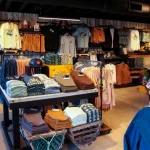Deckers Outdoor reported earnings declined in the fourth quarter with warm weather early in the period leading to a revenue shortfall in its flagship Ugg brand. But Deckers still offered an upbeat outlook, predicting sales would climb 7 percent in 2013, driven by a bounce back with Ugg.
Wall Street on average had been expecting a gain of about 4.5 percent in the current year.
When consumers eventually came out and shopped, albeit later than anticipated, it was clear to us, based on the sales results, that the desirability of the Ugg brand has not waned despite some of the recent challenges facing the business, said Angel Martinez, chairman, CEO and president, on a conference call with analysts. And we believe that it is still strong and in demand.
Earnings in the fourth quarter fell 22.9 percent in the quarter, to $98.1 million, or $2.77 a share. Its EPS projections were reached despite the sales shortfall due to lower than projected operating expenses and reduced share count due to aggressive buyback efforts. Sales increased 2.2 percent to $617.3 million.
Ugg brand sales for the quarter increased 2.9 percent, driven by higher sales from new store openings and an increase in e-commerce sales, partially offset by lower domestic and international wholesale sales and a decline in same store sales. For the full year, Ugg brand sales decreased 1.5 percent to $1.18 billion.
Uggs U.S. business was softer than expected in the quarter due to higher than expected cancellations. A second consecutive warm winter impacted early demand for the core classic and cold weather boots. Sell-through accelerated as December progressed and the weather got colder. Sales of slippers, specialty classics, and casuals delivered consistently solid weekly sell-through throughout the quarter, said Martinez.
Internationally, Uggs UK wholesale business, benefiting from Deckers move to take distribution in-house in early 2011, delivered a fourth-quarter revenue gain and was significantly less promotional. Its wholly owned operations in Benelux and distributor business elsewhere in Europe continued to be challenged by excess carry-over inventory in the channel following last year’s mild winter and difficult macroeconomic conditions. Asia saw a solid end of the year in Japan although that was offset by declines in distributor sales as a result of the transition to a new distributor in Korea and later spring deliveries.
Overall, Martinez noted that the Ugg brand was the number one searched item online during the 2012 shopping season, beating out popular brands such as Apple’s iPad and Kindle’s Fire, and e-commerce orders increased 33 percent during the four-day period from Black Friday through Cyber Monday. He added, These metrics support the findings from our marketing study earlier in the year that indicated intent to purchase and brand interest increased meaningfully from our inaugural study that was run in 2010.
Sanuk brand sales increased 39.2 percent in the quarter to $15.3 million, led by marked success in a number of key national accounts. Martinez said the acceptance of Sanuks expanded selection of colder weather footwear was very positive while demand for sidewalk surfers and sandals, particularly in warmer regions of the US, remained robust. Sanuk.com finished the year well above expectations.
Teva brand sales decreased 29.5 percent to $13.7 million, driven primarily by a decrease in international distributor sales. For the full year, Teva brand sales decreased 7.4 percent to $115.5 million.
Martinez said Teva shipped a large amount of core sandals last year ahead of scheduled price increases in January 2012, with these early shipments accounting for nearly 90 percent of the decline in Teva brand’s Q4 domestic business. Said Martinez, The bottom line is we did not experience a reorder business we would expect given the solid sell-through of Teva brand collections. We believe consumer demand is there but in light of the softness in the outdoor industry, retailers have no appetite for additional inventory.
In its Other Brands segment (Ahnu, Tsubo and Mozo), revenues decreased 29.6 percent in the quarter to $3.5 million, primarily attributable to the phasing out the Simple brand at the end of 2011. Excluding Simple, the companys Other Brands increased 43.2 percent.
Sales for the global retail store business, included in the brand sales numbers and largely Ugg stores, increased 37.1 percent in the quarter to $135.5 million. The gain was driven by 30 new stores opened after the fourth quarter of 2011, partially offset by a same store sales decrease of 3.4 percent. Comps came in favorably versus its outlook for a low double-digit decline with Japan and U.S. outperforming expectations.
US same-store sales were flat on top of an 11 percent increase a year ago. Said Martinez, Like many retailers, we experienced soft traffic patterns during much of the fourth quarter. Despite this, sell-through of slippers, specialty classics and men’s products were solid, with late season demand for classics helping reverse earlier declines.
E-commerce sales increased 22.6 percent in the quarter to $130.6 million. Strong domestic and international sales for the Ugg brand, increased domestic sales of the Sanuk brand, plus the addition of new international e-commerce websites drove the increase.
Domestic sales decreased 2.1 percent to $446.7 million while international sales increased 15.6 percent to $170.5 million.
Gross margin in the quarter was 46.3 percent compared to 51.0 percent for the same period last year. The 470-basis point decline was primarily attributable to an increase in sheepskin prices for the Ugg brand. Deckers had projected a 47 percent margin, with the shortfall due to increased closeouts, markdowns, as well as product mix.
At Dec. 31, backlog was down 17 percent, primarily attributable to lower pre-bookings for Ugg brand domestic wholesale business. Management blamed timing, as customers are starting to be more cautious with the timing and amount of pre-booking due to now two years in a row of inconsistent weather, said Tom George, CFO, on the call.
George said the company has been pleased with retailer response to several collections, led by specialty classics and slippers. But its assumptions remain conservative on the current booking period given the inconsistent weather and its impact on its retail partners overall business.
Looking ahead, Deckers expects revenues for 2013 to increase approximately 7 percent over 2012 levels with gains of 4 percent for Ugg, 6 percent for Teva and 15 percent for Sanuk. EPS is expected to increase approximately 5 percent over 2012 levels. A projected 180-basis point improvement in gross margins is expected to be driven primarily by lower raw material costs, namely sheepskin.
Added George, While we continue to strategically address the impact of weather conditions on our business, our top line guidance assumes another mild winter, similar to the one we just had, as well as for the Ugg brand, a similar amount of reorders and cancellations, as we experienced in 2012.
For the first quarter, revenues are projected to remain flat as compared to first quarter 2012 levels. EPS is expected to show a loss of 12 cents a share, down from earnings of 20 cents a year ago. Deckers noted that a significant amount of its operating expenses are fixed and spread evenly on an absolute dollar basis throughout each quarter. This includes the costs associated with the 24 new stores not open until the second half of 2012. Overall, earnings are expected to decline in the first half in its lower-volume quarters, but bounce back in the back half of the year.














